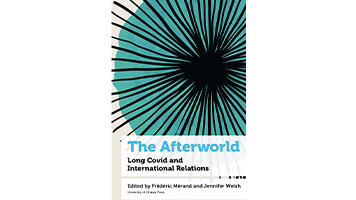Migration and Citizenship
INTRODUCTION
hen asked about his assessment of the French Revolution, Deng Xiaoping reportedly replied, “It’s too early to tell.” Of course, only time can accurately assess the lasting impacts of a crisis. We heard since the start of the pandemic that “the world will never be the same again,” but how might the COVID-19 pandemic bring about sweeping changes to our daily lives, our collective life, and relations between countries? The researchers in this book take an informed, objective look at the various dimensions of the pandemic. Their analysis of its impact on the economy, health care, international security, and many other issues helps us to see more clearly, to distinguish the longer-lasting effects from those that are likely to be shortlived, and to place them in the broader context of existing societal trends. The emergence of COVID-19 has highlighted—more clearly than ever before—the weaknesses and failings of both national and international systems in preventing and managing health crises. It has also brought to light the harsh reality of vulnerable or marginalized groups for whom existing social safety nets have proved inadequate. It has further widened the gap between rich and poor countries. The analyses contained in this volume offer a detailed map of the grey areas the pandemic exposed and identify a range of measures that could be implemented to avoid history repeating itself when the next pandemic—because there will be one—arrives on our doorstep.viii THE AFTERWORLD In several countries, corrective measures were taken in light of the experience gained during the first waves of the pandemic. For example, in Canada, improvements were made to how retirement homes are managed, and to increase medical supply stocks. Think, too, of the telework boom, to which both the private and public sectors adapted remarkably well. The significant—and unprecedented— action governments have taken to counter the economic effects of the pandemic may pave the way for a new kind of economic and fiscal policy. It would have been satisfying to see an equally innovative spirit in international cooperation. Unfortunately, the opposite was true. Tensions between the United States and China are spilling over into the World Health Organization (WHO), where the controversy surrounding the origin of the virus is mobilizing minds and undermining the organization’s credibility. It is hard to imagine a day when the WHO will be granted the powers and resources it needs to fulfill its vital mandate of research, advice, and coordination. This geostrategic dynamic also risks fuelling protectionist tendencies in the name of safeguarding supply and self-sufficiency. Developing countries— for whom international trade and supply chain contribution are a key driver of economic growth—risk paying the price for production capacity being repatriated to developed countries. And what about the global management of vaccines—or lack thereof? China cannot be blamed for the vaccine race that has allowed the richest countries to monopolize vaccine acquisition for the benefit of their own populations, leaving the rest of the planet unprotected. It was almost obscene to talk about a fifth dose when billions of people were still waiting for their first. What made this situation all the more disturbing was that all experts are in agreement that more dangerous variants can emerge in unvaccinated populations. It was not especially surprising that governments turned a deaf ear to calls for human solidarity, but it was harder to understand why they were so indifferent to the implications of this “national selfishness” when it also implicated the safety of their own citizens. Crises have often led to innovation in international cooperation. However, the COVID-19 pandemic was not one such crisis. In this respect at least, the “post-COVID world” resembles the world before—and perhaps will become even worse.
Members and SHERPA Teams
François Crépeau
Director, McGill Centre for Human Rights and Legal Pluralism Rapporteur spécial des Nations Unies pour les droits de l’homme des migrants de 2011 à 2017

